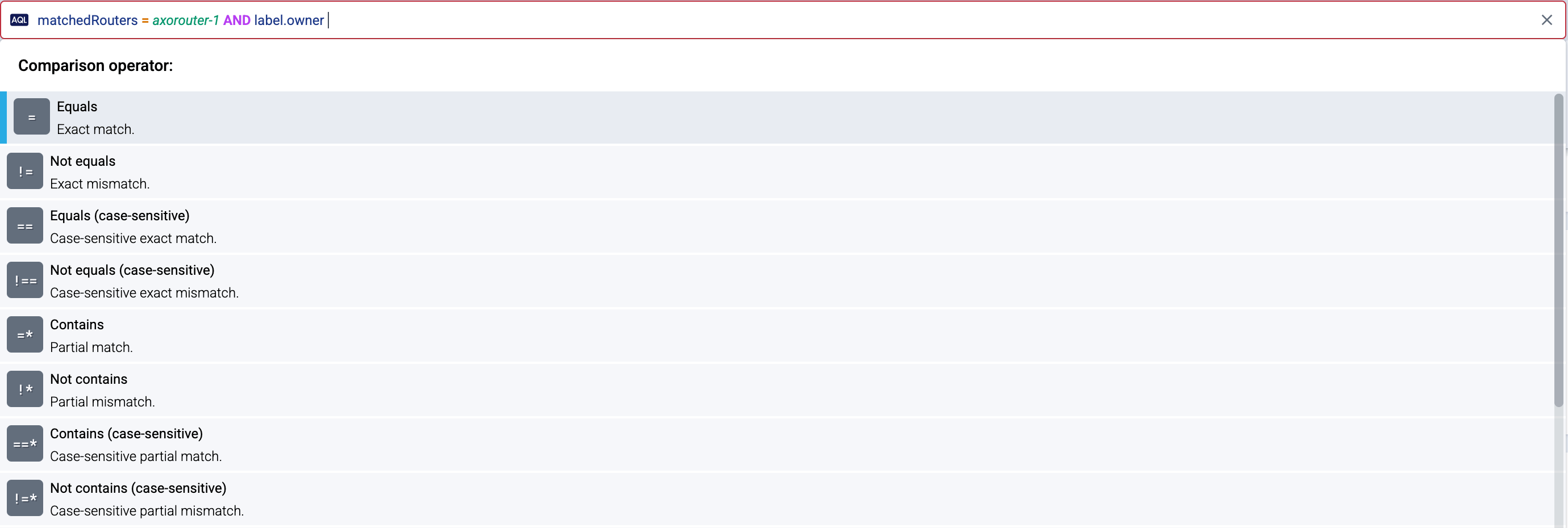AQL Query search supports the following comparison operators.
Case insensitive:
- Equals (
=): the whole value equals to the pattern - Not equals (
!=): the value isn’t exactly equal to the whole pattern - Contains (
=*): the value contains the given pattern - Doesn’t contain (
!*): the value doesn’t contain the given pattern - Matches (
=~): the pattern as a regular expression matches the value - Doesn’t match (
!~): the case-insensitive regular expression doesn’t match
The comparison operators have their corresponding case sensitive (strict) versions:
- Equals (
==) - Not equals (
!==) - Contains (
==*) - Doesn’t contain (
!=*) - Matches: (
==~) - Doesn’t match (
!=~)
The syntax of the regular expressions accepted is the same general syntax used by Perl, Python, and other languages. The regular expressions are evaluated in case-insensitive mode in case of the =~ and !~ operators. The patterns are not anchored to the whole string, but you can use ^ at the beginning of the pattern and $ at its end to match the whole value.

You can create complex queries using the AND and OR logic operators and parentheses, for example, ( host_name =* azure AND host_label_team = network ) OR ( host_name =* app AND host_label_app =* windows )
Escaping rules
Enclose the field names and values in single-quotes ('), double-quotes ("), or \` if it contains characters not on this list: @, a-z, 0-9, ._-
If all three quote types occur, enclose with single-quotes and escape single-quotes as \\'.
You can escape backslashes as \\\\.